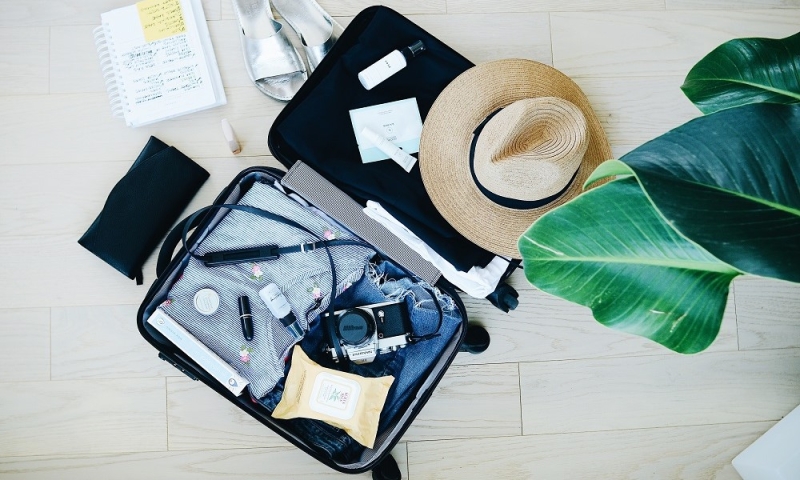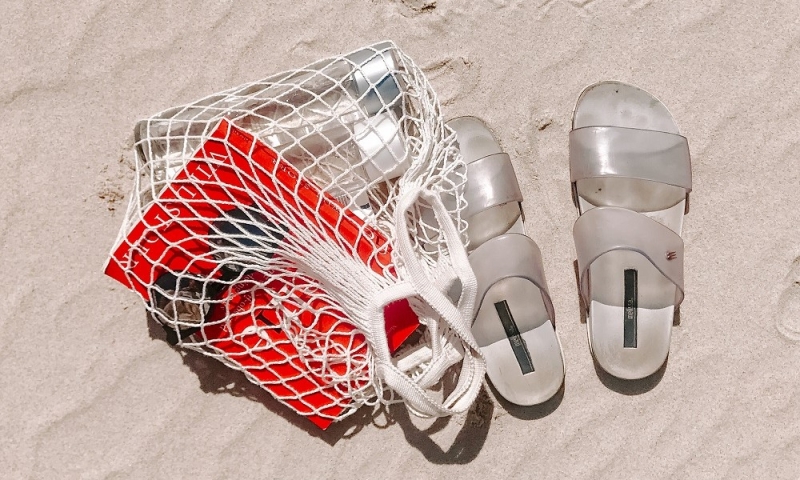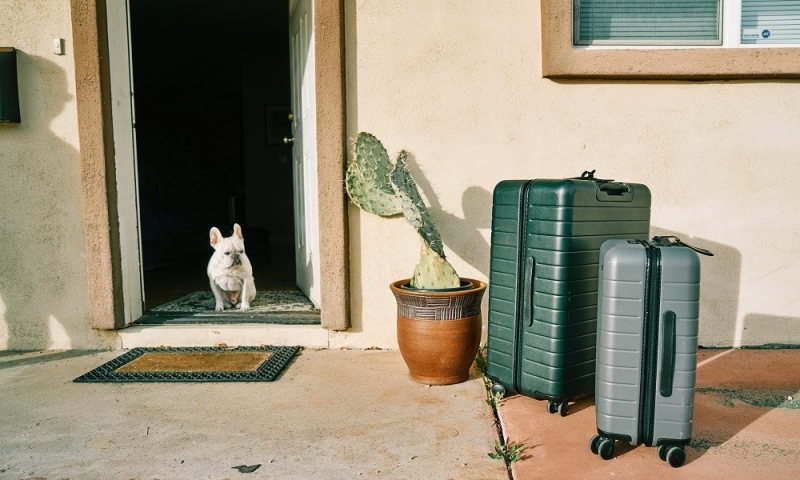
Giving up plastic, sorting garbage and other zero-waste habits have long been part of the lives of many of us. But when traveling you have to start all over again and it seems like something very difficult. In this article we will tell you how to travel without leaving behind a trace of waste and garbage.
Choose transport

You can make your vacation more environmentally friendly at the planning stage. Airplanes are considered the most harmful form of transport for the environment, as very large emissions of carbon dioxide occur during takeoff and landing. Therefore, for short distance travel it is better to choose a train or bus. For example, a train from Moscow to St. Petersburg emits 29 kg of carbon dioxide, and a plane in the same direction emits 93 kg.
Another advantage of trains: they usually arrive directly in the city center, where you would have to take a taxi or bus from the airport.
The carbon footprint is the amount of carbon dioxide that a vehicle emits into the air.
Make a choice in favor of public transport powered by electricity – tram, trolleybus, metro. But even a regular bus will be a more environmentally friendly option than a car, because it carries many passengers at once and has a smaller carbon footprint for everyone.
If you decide to rent a car, give preference to electric cars or options with a hybrid engine – there is no carbon dioxide emissions into the atmosphere when starting and braking.
And don’t forget about bicycles and electric scooters – this way you can explore a new place with minimal harm to nature.
Pack your suitcase

The easiest way to reduce non-degradable waste is to stop using toiletries in plastic packaging. In addition, this helps to save not only space, but also money. For example, 60 g of solid shampoo will last for 40 uses, and a 100 ml bottle of liquid shampoo will last only 20 uses.
Toothpaste
Travel toothpaste formats don’t take up much space, but eliminating them will help reduce the amount of plastic. Replace the usual tube with dental tablets, which are sold by weight. The bonus of such analogues is that they are not considered liquid, so you won’t have to worry about restrictions if you travel with hand luggage.
Shampoo and hair conditioner
The same benefits are provided by solid hair and body products. They not only take up less space, but also retain more natural ingredients.
Deodorant
The compressed gases contained in aerosols and the plastic packaging of all standard deodorants cause enormous harm to the environment. In addition, they are prohibited from being carried in hand luggage on an airplane. Solid deodorant is the perfect substitute for plastic-free travel. It is a soap block made from natural ingredients, which lasts for more than a year of daily use.
Reusable cotton pads and buds
Bamboo cotton swabs and reusable cotton cotton pads can be washed and reused. They are made entirely from natural materials – cotton, bamboo and starch, so they do not cause allergies, unlike their synthetic counterparts.
Shopper

Bring a reusable tote bag and fabric bags. They will not take up much space even in hand luggage and will replace plastic and cellophane bags while shopping or going to the market.
Reusable bottle
One of the easiest and perhaps best ways to reduce plastic when traveling is to purchase a reusable liquid bottle.
Usually a person drinks two bottles of water a day. But each one will end up as plastic in the trash because they cannot be reused as they begin to release harmful toxins.
A reusable bottle is also a great way to save money. You can take this container with you on the plane and fill it at the airport through the drinking fountain. In many cities they are installed in tourist places, on the streets and in shopping centers. Take such a bottle to a coffee shop and ask to pour a drink into it – then you can also refuse cardboard cups and plastic lids for them. As a bonus for such “savings” on glasses, establishments often offer discounts.
Useful tips

Choose hotels marked “eco”
Stay in hotels that use renewable energy, eliminate disposable tableware and plastic packaging, and serve only seasonal ingredients in restaurants. On OneTwoTrip, such accommodations are tagged with the “Eco-hotel” filter.
Avoid using toiletries in hotels
Small jars of shampoo, shower gel, soap and body lotion are best left untouched. After you evict, they will be thrown away, even if you just opened them.
Say no to plastic utensils
Takeaway food leaves an environmental footprint in the form of packaging. When choosing a place to have a snack, choose options with reusable plates and cutlery. It is better to avoid straws and plastic lids for glasses if possible, and you can ask for baked goods to be wrapped in a napkin.
Sort the garbage
In almost all progressive cities there are constantly bins with the ability to sort garbage. They are usually found on the streets, in hotels and shopping centers. If, for example, you were unable to buy fruit in bulk, wash the packaging at home, dry it and throw it in the right container.
Take care of nature
Respect the environment: when walking, do not stray from designated eco-paths, and when hiking, light fires only in places specially designated for this purpose. And bring garbage collection equipment with you: gloves, bags and containers.
Bring stories, not souvenirs

When traveling, we often ask ourselves the question “What to give to friends and family?”. Most often, the choice falls on magnets, bells and figurines – as a rule, they sit and collect dust in the house of a person who has never been to this country. Eventually they will end up in the trash and join the city’s landfills.
If you can’t do without souvenirs, then avoid items made from shells, corals, animal skins and bones. If possible, take things that the recipient will really need: for example, instead of a figurine, you can buy a jar of local jam or sweets from the market. For unusual souvenirs, go to second-hand and vintage shops – you can often find real treasures there: old books, postcards, small home decoration and traditional clothing. Or support local businesses and local productions that care about the environment.

